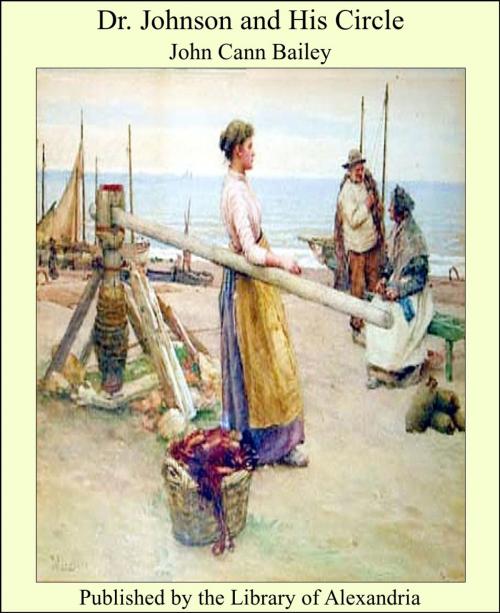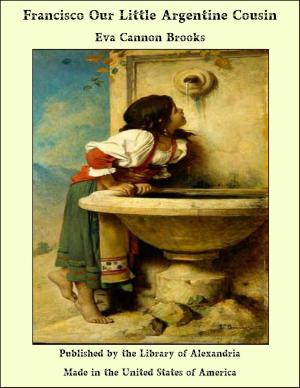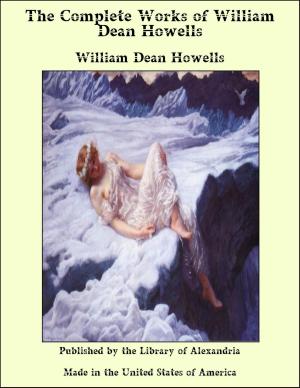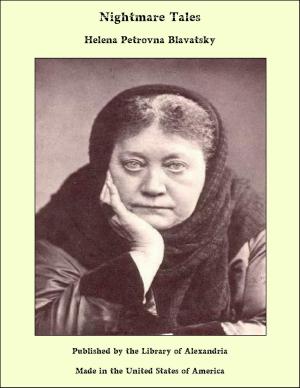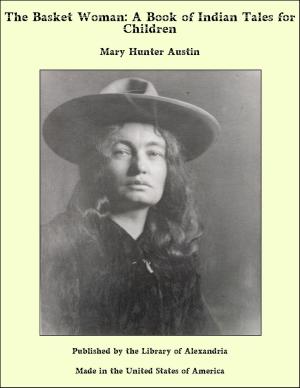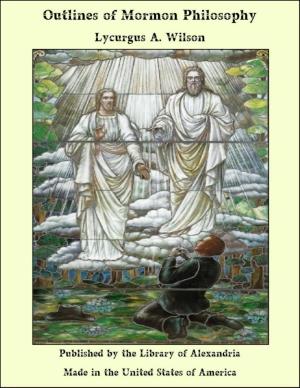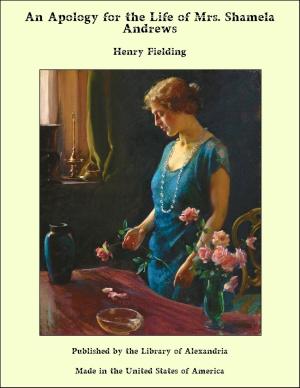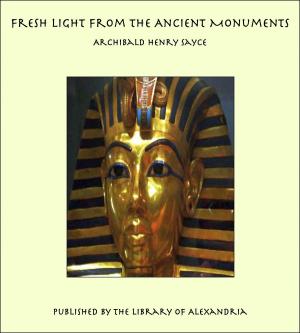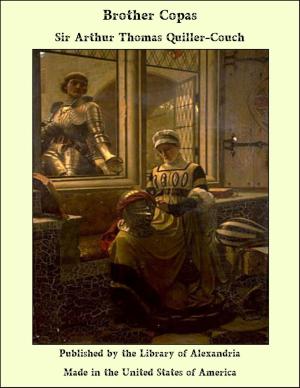Dr. Johnson and His Circle
Nonfiction, Religion & Spirituality, New Age, History, Fiction & Literature| Author: | John Cann Bailey | ISBN: | 9781465529701 |
| Publisher: | Library of Alexandria | Publication: | March 8, 2015 |
| Imprint: | Language: | English |
| Author: | John Cann Bailey |
| ISBN: | 9781465529701 |
| Publisher: | Library of Alexandria |
| Publication: | March 8, 2015 |
| Imprint: | |
| Language: | English |
JOHNSON AS A NATIONAL INSTITUTION The name of Samuel Johnson is, of course, not the greatest in English prose, but even to-day, when he has been dead more than a century and a quarter, it is still the most familiar. We live in an age of newspapers. Where all can read, the newspaper press, taken as a whole, will be a fairly accurate reflection of what is in the mind of a people. Nothing will be mentioned frequently in newspapers which is not of some interest to a large number of readers; and whatever is frequently mentioned there cannot fail to become widely known. Tried by this test, Johnson's name must be admitted to be very widely known and of almost universal interest. No man of letters—perhaps scarcely even Shakespeare himself—is so often quoted in the columns of the daily press. His is a name that may {8} be safely introduced into any written or spoken discussion, without fear of the stare of unrecognizing ignorance; and the only danger to which those who quote him expose themselves is that of the yawn of over-familiarity. Even in his own lifetime his reputation extended far beyond the limited circle of literature or scholarship. Actresses delighted in his conversation; soldiers were proud to entertain him in their barracks; innkeepers boasted of his having slept in their inns. His celebrity was such that he himself once said there was hardly a day in which the newspapers did not mention his name; and a year after his death Boswell could venture to write publicly of him that his "character, religious, moral, political and literary, nay his figure and manner, are, I believe, more generally known than those of almost any man." But what was, in his own day, partly a respect paid to the maker of the famous Dictionary and partly a curiosity about "the great Oddity," as the Edensor innkeeper called him, has in the course of the nineteenth century become a great deal more. He is still for us the great scholar and the strongly marked individuality, but he has gradually attained a kind of apotheosis, a kind of semi-legendary position, almost rivalling that of the great John Bull himself, as the {9} embodiment of the essential features of the English character. We never think of the typical Englishman being like Shakespeare or Milton. In the first place, we know very little about Shakespeare, and not very much about Milton; and so we are thrown back on their works, and our mental picture of them takes on a dim and shadowy grandeur, very unlike what we see when we look within into our familiar and commonplace selves. Nor do Englishmen often plume themselves on their aesthetic or imaginative gifts. The achievements of Wren, or Purcell, or Keats may arouse in them admiration and pride, but never a sense of kinship. When they recognize themselves in the national literature, it is not Hamlet, or Lear, or Clarissa, or Ravenswood that holds up the mirror; but Falstaff, or The Bastard, or Tom Jones, or Jeanie Deans, or perhaps Gabriel Oak: plain people, all of them, whatever their differences, with a certain quiet and downright quality which Englishmen are apt to think the peculiar birthright of the people of this island. It is that quality which was the central thing in the mind of Johnson, and it is to his possession of it, and to our unique knowledge of it through Boswell, that more than anything else he owes this position of the typical Englishman among our men of letters. We can all imagine that {10} under Other conditions, and with an added store of brains and character, we might each have been Doctor Johnson. Before we could fancy ourselves Shelley or Keats the self that we know would have to be not developed but destroyed. But in Johnson we see our own magnified and glorified selves. It has sometimes been asserted to be the function of the man of letters to say what Others can feel or think but only he can express. Whatever may be thought of such a definition of literature, it is certain that Johnson discharged this particular function with almost unique success. And he continues to do so still, especially in certain fields
JOHNSON AS A NATIONAL INSTITUTION The name of Samuel Johnson is, of course, not the greatest in English prose, but even to-day, when he has been dead more than a century and a quarter, it is still the most familiar. We live in an age of newspapers. Where all can read, the newspaper press, taken as a whole, will be a fairly accurate reflection of what is in the mind of a people. Nothing will be mentioned frequently in newspapers which is not of some interest to a large number of readers; and whatever is frequently mentioned there cannot fail to become widely known. Tried by this test, Johnson's name must be admitted to be very widely known and of almost universal interest. No man of letters—perhaps scarcely even Shakespeare himself—is so often quoted in the columns of the daily press. His is a name that may {8} be safely introduced into any written or spoken discussion, without fear of the stare of unrecognizing ignorance; and the only danger to which those who quote him expose themselves is that of the yawn of over-familiarity. Even in his own lifetime his reputation extended far beyond the limited circle of literature or scholarship. Actresses delighted in his conversation; soldiers were proud to entertain him in their barracks; innkeepers boasted of his having slept in their inns. His celebrity was such that he himself once said there was hardly a day in which the newspapers did not mention his name; and a year after his death Boswell could venture to write publicly of him that his "character, religious, moral, political and literary, nay his figure and manner, are, I believe, more generally known than those of almost any man." But what was, in his own day, partly a respect paid to the maker of the famous Dictionary and partly a curiosity about "the great Oddity," as the Edensor innkeeper called him, has in the course of the nineteenth century become a great deal more. He is still for us the great scholar and the strongly marked individuality, but he has gradually attained a kind of apotheosis, a kind of semi-legendary position, almost rivalling that of the great John Bull himself, as the {9} embodiment of the essential features of the English character. We never think of the typical Englishman being like Shakespeare or Milton. In the first place, we know very little about Shakespeare, and not very much about Milton; and so we are thrown back on their works, and our mental picture of them takes on a dim and shadowy grandeur, very unlike what we see when we look within into our familiar and commonplace selves. Nor do Englishmen often plume themselves on their aesthetic or imaginative gifts. The achievements of Wren, or Purcell, or Keats may arouse in them admiration and pride, but never a sense of kinship. When they recognize themselves in the national literature, it is not Hamlet, or Lear, or Clarissa, or Ravenswood that holds up the mirror; but Falstaff, or The Bastard, or Tom Jones, or Jeanie Deans, or perhaps Gabriel Oak: plain people, all of them, whatever their differences, with a certain quiet and downright quality which Englishmen are apt to think the peculiar birthright of the people of this island. It is that quality which was the central thing in the mind of Johnson, and it is to his possession of it, and to our unique knowledge of it through Boswell, that more than anything else he owes this position of the typical Englishman among our men of letters. We can all imagine that {10} under Other conditions, and with an added store of brains and character, we might each have been Doctor Johnson. Before we could fancy ourselves Shelley or Keats the self that we know would have to be not developed but destroyed. But in Johnson we see our own magnified and glorified selves. It has sometimes been asserted to be the function of the man of letters to say what Others can feel or think but only he can express. Whatever may be thought of such a definition of literature, it is certain that Johnson discharged this particular function with almost unique success. And he continues to do so still, especially in certain fields
